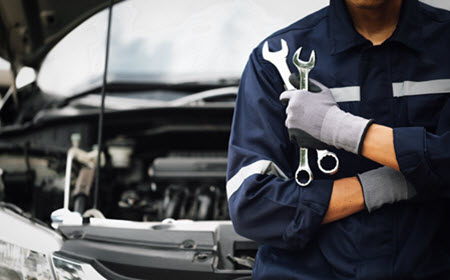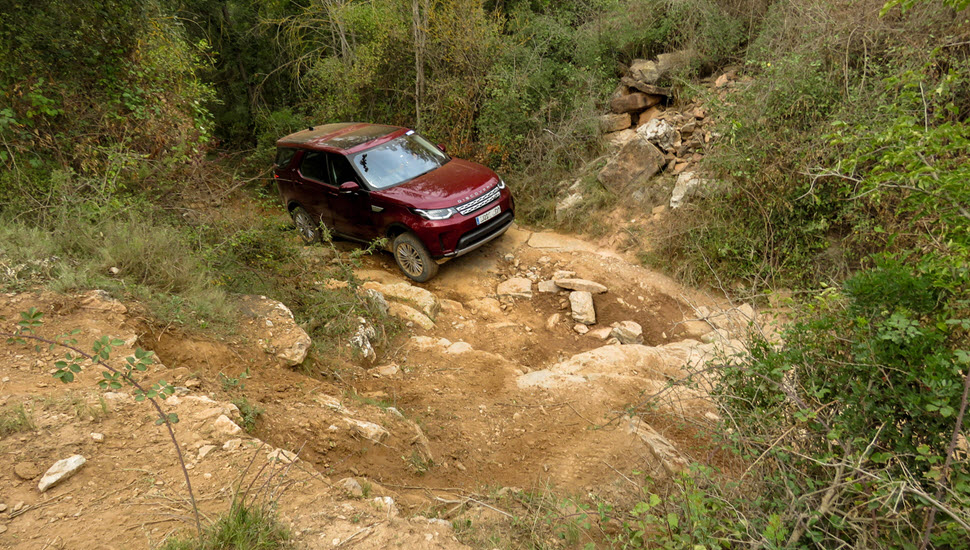You probably already know Land Rovers for their exceptional off-road capabilities, and a crucial component that enhances this prowess is the Hill Descent Control (HDC) system. HDC ensures a controlled and safe descent on steep terrains, making it an indispensable feature for adventurers and outdoor enthusiasts. However, there are several potential issues that can disrupt its operation.
What is a Land Rover HDC?
Land Rover’s Hill Descent Control (HDC) is a highly sophisticated system designed to provide a level of control and safety during downhill off-road maneuvers that was previously unimaginable. HDC enables Land Rover drivers to navigate steep slopes with ease and confidence. The system automatically modulates the car’s speed and braking force, allowing for a controlled and smooth descent. In essence, HDC acts as a safety net for off-road driving, enhancing the overall driving experience.
What Causes HDC Failure in Land Rovers?
To effectively troubleshoot HDC issues, it is crucial to understand the root causes. Here are some common culprits behind HDC failure:
- Sensor Malfunction: HDC relies on a network of sensors to monitor various parameters, including the car’s speed, angle, and descent. Sensor malfunctions can disrupt the system’s accuracy, leading to HDC failure.
- Electrical Issues: Electrical components, such as wiring and connectors, are vulnerable to wear and tear. Problems with these components can result in HDC failure.
- Software Glitches: Just like any other modern car system, HDC is controlled by software. Occasionally, software-related glitches can affect HDC performance, necessitating software updates or reprogramming.
- Mechanical Problems: HDC’s operation is closely tied to the car’s braking system. Therefore, any faults in the brake components or hydraulic systems can hinder HDC’s ability to control descent smoothly.
What are Potential Signs of Problems with a Land Rover HDC Failure?
When HDC fails to function as intended, it can give rise to a range of risks and safety concerns:
- Loss of Control: One of the most immediate and severe consequences of HDC failure is the potential loss of control when descending steep slopes. Without HDC’s intervention, drivers may struggle to maintain a steady speed, increasing the risk of accidents.
- Brake Overheating: HDC plays a crucial role in managing the braking force during a descent. If HDC fails, it can result in excessive brake usage, leading to brake overheating. Overheated brakes not only reduce their effectiveness but can also cause significant damage to the brake system.
- Reduced Off-Road Capability: Land Rovers are celebrated for their off-road capabilities. HDC is an integral part of this capability, and its failure can severely limit the car’s potential in challenging terrains.
Why It’s Important to Stay Ahead of Land Rover HDC Issues
Addressing HDC problems in a timely manner offers a multitude of advantages. Fixing HDC issues ensures safer descents on steep slopes, thereby reducing the risk of accidents and damage to the car.
When HDC operates correctly, it effectively manages the braking force, preventing excessive brake wear and overheating, which can significantly extend the life of your Land Rover’s braking system.
Restoring HDC functionality also allows you to fully enjoy off-road driving without limitations, ensuring that your Land Rover remains the reliable companion it was designed to be.
How to Fix HDC Issues in Your Land Rover to Avoid Future Consequences
Resolving HDC problems requires a systematic approach and, in many cases, the expertise of trained professionals. The first step in resolving HDC issues is to perform a comprehensive diagnostic assessment. This step involves using specialized diagnostic tools to identify the exact cause of HDC failure. The assessment helps pinpoint whether the issue is related to sensors, electrical components, software, or mechanical problems.
If the diagnostic assessment reveals sensor issues, recalibration or replacement of the sensors may be necessary. Recalibrating the sensors ensures that HDC receives accurate data to function correctly.
Inspect the electrical components for loose connections, damaged wiring, or corroded connectors. These issues can disrupt the flow of critical data, leading to HDC failure. Address any electrical problems by repairing or replacing the affected components.
Software-related issues are occasionally the root cause of HDC problems. Ensuring that your Land Rover’s software is up to date is essential. In some cases, applying software updates or reprogramming the system can resolve HDC glitches.
A thorough inspection of the brake components and hydraulic system is crucial. Any faults in these areas can affect HDC’s ability to control the descent. Replace or repair damaged brake components to ensure that HDC operates smoothly.
For complex HDC issues or situations where the exact cause is challenging to determine, seeking professional assistance is advisable. Experienced Land Rover mechanics have the necessary knowledge and equipment to diagnose and repair HDC problems effectively.
Get Your Land Rover’s HDC System Checked Out Today
Your Land Rover’s Hill Descent Control  is a remarkable system that significantly enhances off-road driving safety and enjoyment. However, HDC can encounter various issues, which, if left unaddressed, can compromise the safety and performance of your Land Rover. Understanding the causes and benefits of resolving HDC problems is essential for every Land Rover owner.
is a remarkable system that significantly enhances off-road driving safety and enjoyment. However, HDC can encounter various issues, which, if left unaddressed, can compromise the safety and performance of your Land Rover. Understanding the causes and benefits of resolving HDC problems is essential for every Land Rover owner.
If you are experiencing HDC issues, don’t hesitate to contact Euroservice Automotive in Bristow, Gainesville, Haymarket, Manassas, and Warrenton, VA. Our dedicated and skilled mechanics are here to assist you in diagnosing and resolving HDC problems promptly and efficiently.
* Land Rover Car image credit goes to: Javier Peribanez.

 6583 Merchant Place Suite 304,
6583 Merchant Place Suite 304,




